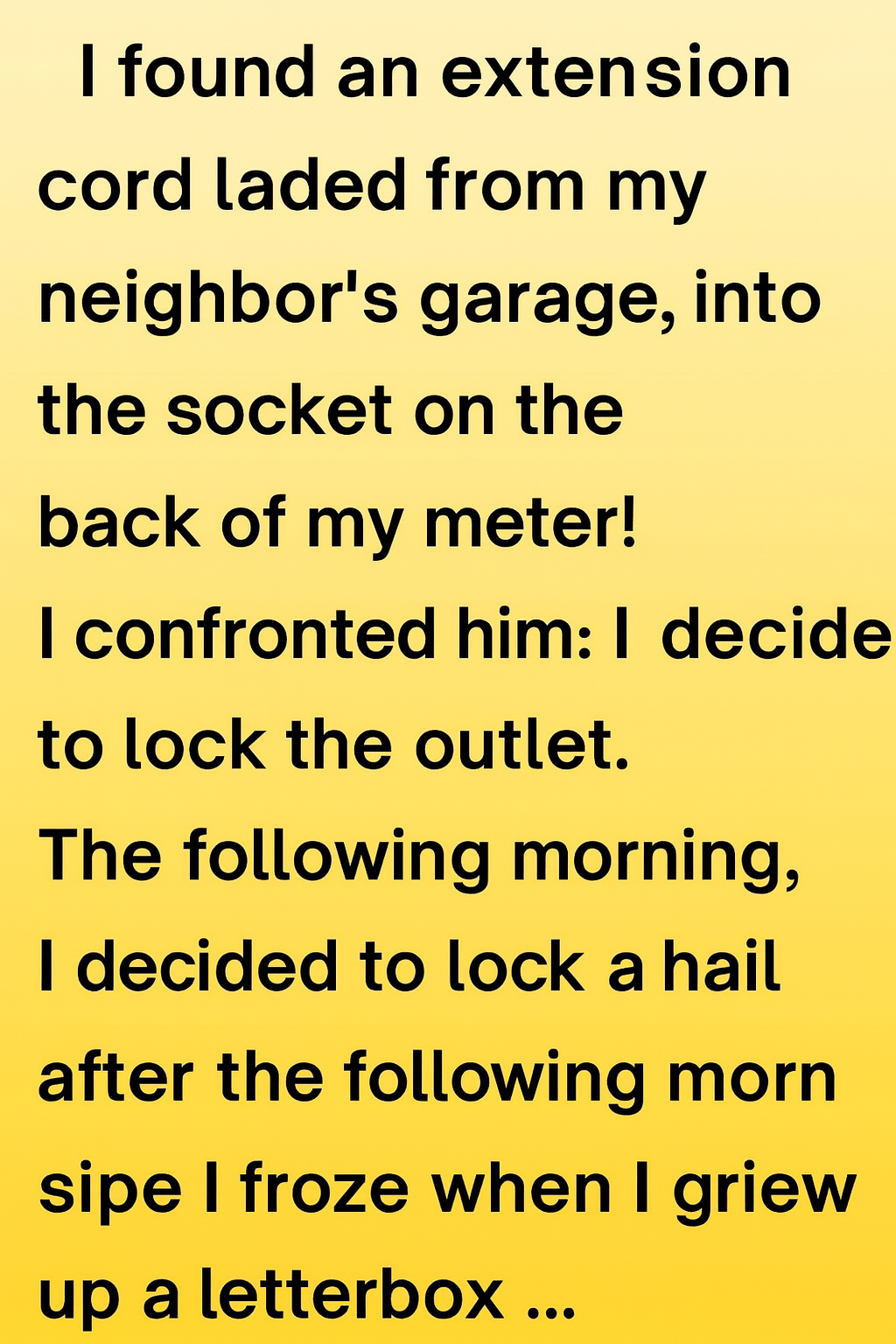I caught an extension cord running from my neighbor Ron’s garage into the socket behind my house. When I confronted him, he just laughed it off, saying it was “only pennies.” Annoyed, I bought a lockable cover. The next morning, I found a note in my letterbox: “You’re colder than your electricity, mate.” At first I was angry, then oddly guilty. Ron had lived next door for years. We used to talk, barbecue, swap tools—until his wife died.
After that, he withdrew into his garage and barely spoke to anyone. I’d tried reaching out, but he always kept a distance. So when I saw the extension lead, I reacted out of irritation, not curiosity. But the note stuck in my mind. That night, I noticed his garage was pitch black. No radio, no lights. Something felt off. I went over, knocked, and got no answer. Through the small window, I saw him on the floor.
He was barely conscious. I called an ambulance. Turned out Ron’s electricity had been cut off, his fridge broken, and his diabetes unmanaged. The extension cord was his only way to keep things running. He hadn’t asked for help because he didn’t want to be a burden. The paramedics said he might not have survived if I hadn’t checked.
After he returned from the hospital, I apologized. We slowly reconnected. Neighbors pitched in. Ron brightened again—fixing bikes, mending tools, helping people. One day he brought me a handmade bench with a plaque: “The Cord Between Us.” And he was right. It was never about the power. It was about connection.
